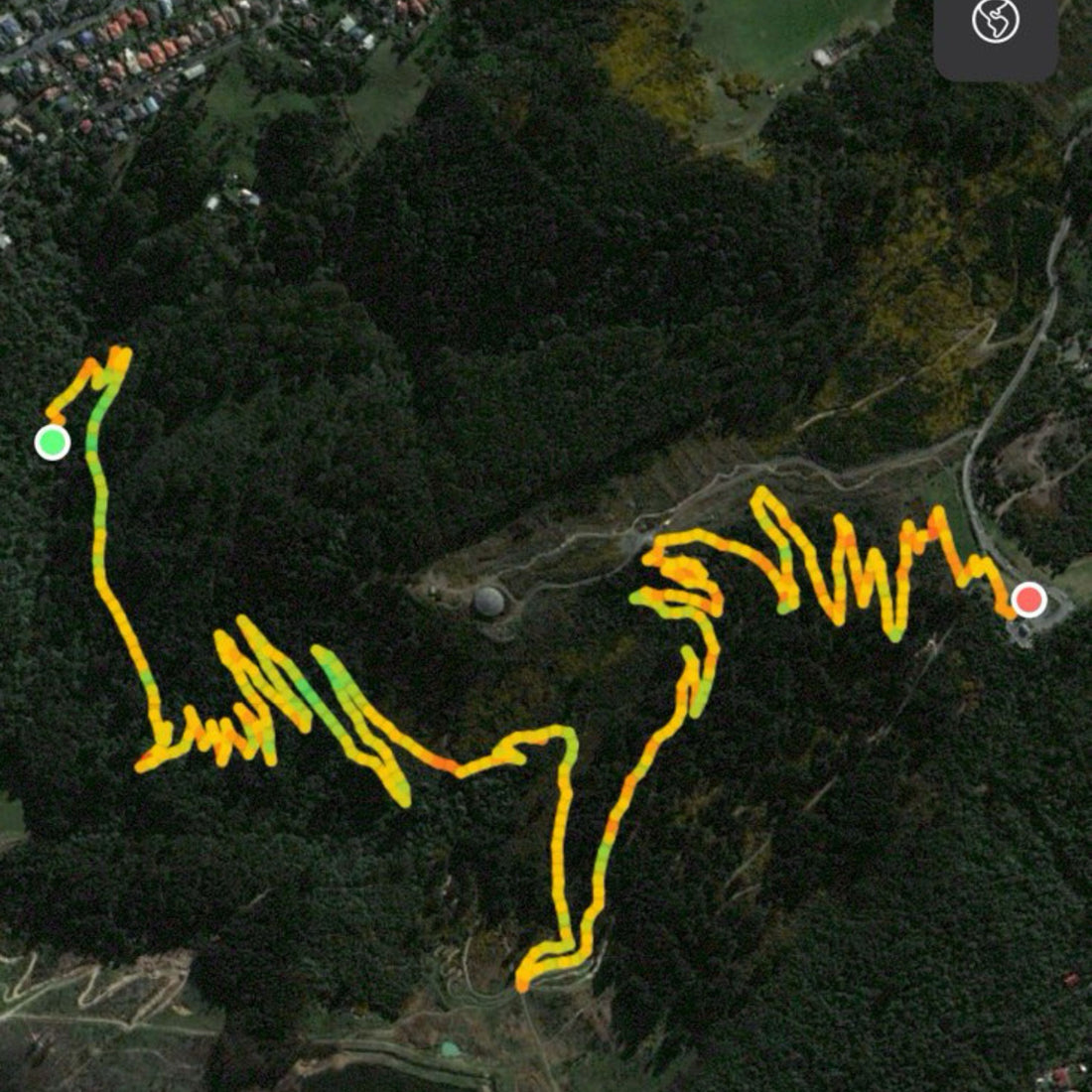By Darcy Schack
In the climactic moments of Star Wars - Revenge of the Sith - General Obi-Wan Kenobi, fuelled by duty to the Jedi and a fierce resolve to end the Clone Wars, pursued the notorious General Grievous to the rugged terrains of Utapau. Here, amidst the towering rock faces, he was informed by the shadowy Pau'ans—natives of the planet—of the cyborg general's hideout.
The confrontation that ensued was intense - amidst the echoes of the final battle, Obi-Wan lost his iconic weapon the light saber. Cornered and desperate, he deftly summoned a blaster laying on the ground to his hand using the Force, firing at Grievous' vital organs hidden behind his chest plate, effectively ending the general's reign of terror. He dropped the blaster with a disdainful comment on its uncivilised nature.
Years ago, long before such tales of intergalactic strife stirred the imagination, my life revolved around the simpler joy of cycling, like using a light saber in battle, riding a bike is just more civilised.
Mounting my trusty steed, a fire engine red Gary Fisher 29er, I found solace in the repetitive spinning of its large wheels—a pioneering model in the 29-inch category, known for reducing rolling resistance and enabling greater speed. These rides weren't just commutes; they were liberating journeys through cityscapes and trails alike, filled with introspective moments and a profound sense of freedom. Even in the dead of winter, I would pedal vigorously just to keep warm (it is hard to stay warm during Canadian winters of -40°C), the thrill of the chill competing with the warmth of my exertion. My bike was more than a vehicle; it was a veritable extension of my being, much like the Lone Ranger’s trusted horse Silver, allowing me to manoeuvre through traffic and time, faster than any car could manage.
However, this passion was not without its hazards. Night rides, in particular, posed their own set of challenges as sometimes my lights would fail, leaving me to navigate in near darkness.
On more than one occasion, I encountered unexpected obstacles—a tree downed by a beaver, or startlingly, the beaver itself, which once screeched and lunged at me in a startling display of teeth and claws. Fortunately, it was my bike that bore the brunt of its alarm, not my leg. I ran into and over a surprising number of drunk people sleeping or passed out on the trails particularly on the weekends.
My fitness peaked during these years as I trained relentlessly for the Kelowna Iron Man. One evening's run took a disastrous turn when, distracted by my iPod, I misjudged a curb and severely injured my ankle. The break was as sudden as it was painful, and it sounded like the snapping of a thick celery stalk. Recovery was a grueling year-long ordeal. It was unadulterated hell.
Even as I resumed training, pushing myself to the brink, another misstep led to a re-injury. The subsequent realization that my days of running and cycling might be over was crushing. My journey through recovery was dotted with various treatments from an array of specialists—Surgeons and physiotherapists to acupuncturists and even more unconventional healers from tarot card readers to witch-doctors with chicken bones—each offering a mosaic of hope and disappointment.
As time progressed, I faced further challenges, including the development of an autoinflammatory autoimmune disease that compromised my lung function and overall vitality.
My physical condition deteriorated, leading to additional serious health issues, including a heart attack in 2019. Nightly, a CPAP machine became my lifeline, providing essential breathing support. Carrie Fisher of Star Wars fame died because of sleep apnoea as a contributing factor on an airplane to Los Angeles. This just highlighted to me the precarious nature of life itself.
A dream, nightmare recently reminded me of my former vitality and passion for cycling; I was cycling up my favourite and beloved mountain pass, feeling the sun's warmth and the gentle caress of the wind across my face. The wind across my face was actually the mask from my CPAP which had come loose and was blowing cold air across my face. Awakening from this nightmare to the reality of my condition was harsh to say the least. Yet, it also marked a turning point. Over the past year, with my condition in remission and my treatment reduced, I have cautiously returned to physical activity, gradually reintegrating walking and eventually cycling into my routine.
Last Sunday, I managed to climb (on my bike) 'The Big Easy' in Dunedin—a challenging yet exhilarating ascent that culminated in a profound sense of achievement and gratitude as I looked out over Dunedin. Resting at the summit, I reflected on the journey and the friends and memories I've cherished along the way, especially my recently deceased friend Vaughn.
This resurgence of activity isn't just about regaining physical strength; it's about embracing each moment and opportunity life offers, no matter how daunting the past or uncertain the future.
Through it all, I remain grounded in the philosophy of acceptance—embracing each day with gratitude and a humble recognition of life's fleeting joys and enduring challenges. Here I am, resilient and grateful for every breath, every pedal stroke, every sunrise that greets me. I willingly submit to the human spirit's capacity to endure and thrive despite the trials we face.
That is why we started Zestt. That is why we developed a product, which purpose it is to down-regulate inflammation in the body and particularly in the lungs. It with other mitigants have allowed me this opportunity, and I dare not waste it.
No one gets out of life alive in the end. Carpe diem!
All the best, Anna and Darcy.
If you would like to discuss any of this further, please contact Darcy or Anna (who you can contact at +64 27 599 2255 or +64 27 4861418 respectively) or via info@zesttwellness.com.
 United States
United States New Zealand
New Zealand
